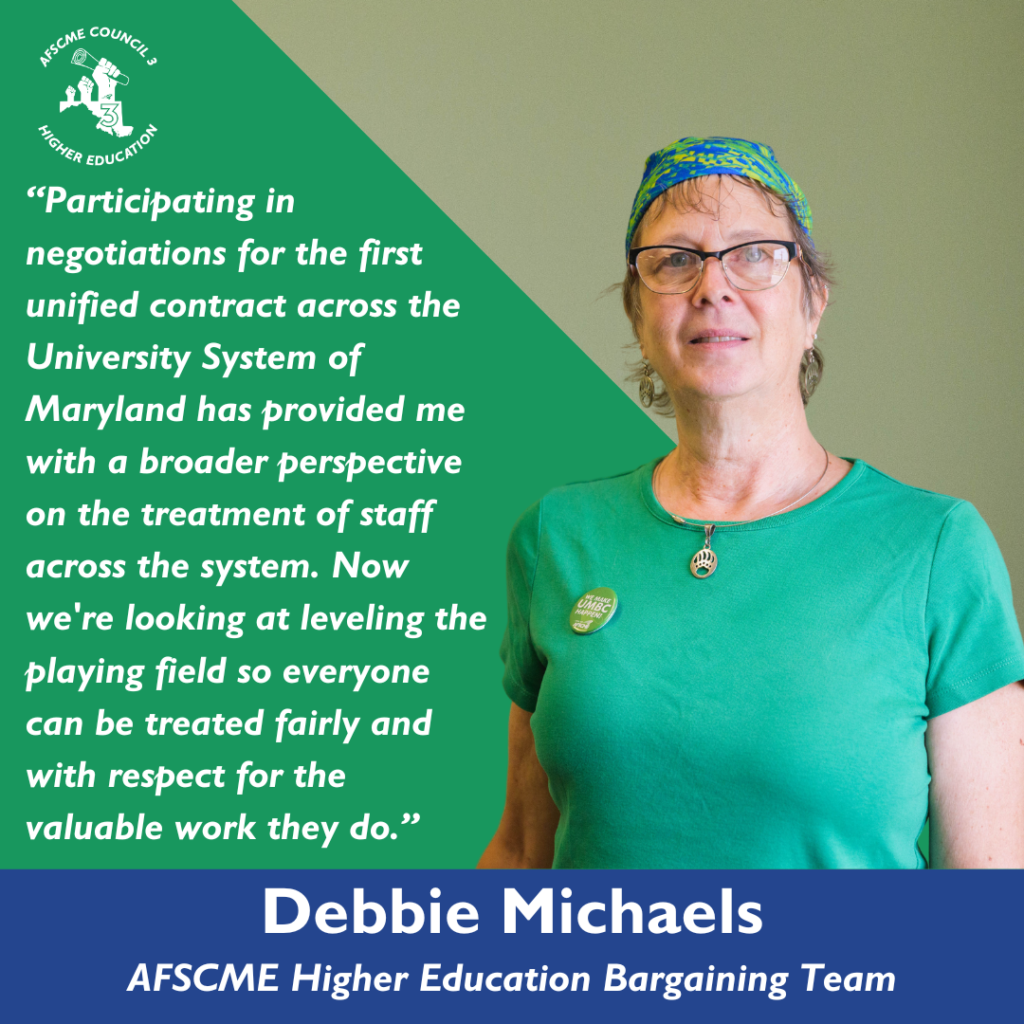On Wednesday, February 7, the AFSCME Maryland Bargaining Team met with the University System of Maryland for another bargaining session at the AFSCME Maryland Bush Street office in Baltimore.
It was another long bargaining session that lasted well after midnight. We were able to make significant progress on a number of issues, including the following:
- Reduced disparity in leave accrual between exempt and non-exempt employees
- Holiday schedule
- Seniority
- Workplace bullying
- On-call pay
- Performance evaluations
- Grievances and disciplines
- Protections from harmful air quality
- Professional development days
Our next bargaining session will be on Thursday, February 22. The outstanding issues and topics we hope to cover in the next session include:
- Essential employee designations
- Acting capacity pay
- Protections against contracting out work performed by bargaining unit members
- Privacy rights
- Duration of this union contract
While there’s still more work to be done, we have made significant progress towards securing our first unified contract for all schools in the University System of Maryland. If you’d like to get involved, let us know by emailing info@afscmemd.org.
Here is what AFSCME Local 1459 President Debbie Michaels had to say about how bargaining with the University System of Maryland has been going:
“I’ve worked at the University of Maryland, Baltimore County (UMBC) for over 16 years. This job was the first opportunity for me to join a union, and I’ve been a member since day one! I was deeply inspired by Sally Field in ‘Norma Rae’. Ever since I saw that movie, I wanted to be a part of the fight for workers’ rights.
I joined the USM bargaining team because I was always told, ‘If you’re not at the table, you’re on the menu.’ I wanted to be a voice for the dedicated and hardworking people that work at UMBC. Participating in negotiations for the first unified contract across the University System of Maryland has provided me with a broader perspective on the treatment of staff across the system. Now we’re looking at leveling the playing field so everyone can be treated fairly and with respect for the valuable work they do.
Wages are obviously important, but seniority should be rewarded. Institutional knowledge should be protected, and staff working for many years should have the same opportunities as new hires. Winning binding interest arbitration is also incredibly important. Without this, during contract negotiations, management can just walk away, even though the evidence we provide clearly shows that they can meet our demands. The enforcement mechanism to make management follow through and play fair is critical.
I’m extremely proud of the progress we’ve made together and the resilience of our team. In this last session, we were in bargaining until after midnight, with USM management trying to pressure us to concede, but we were steadfast. We will not be pushed to sign off on their proposals without the support of our entire team, many of whom could not stay once it got too late. These dirty tactics won’t work on us.
All in all, you don’t need a union until you need a union. As workers nationwide explore union representation, I’m disgusted by the anti-union efforts funded by taxpayer money. They know that unions are effective. If unions weren’t effective, why would they spend so much money trying to convince us otherwise?”
